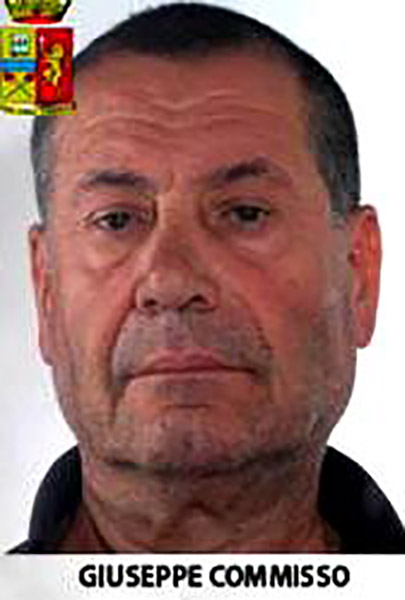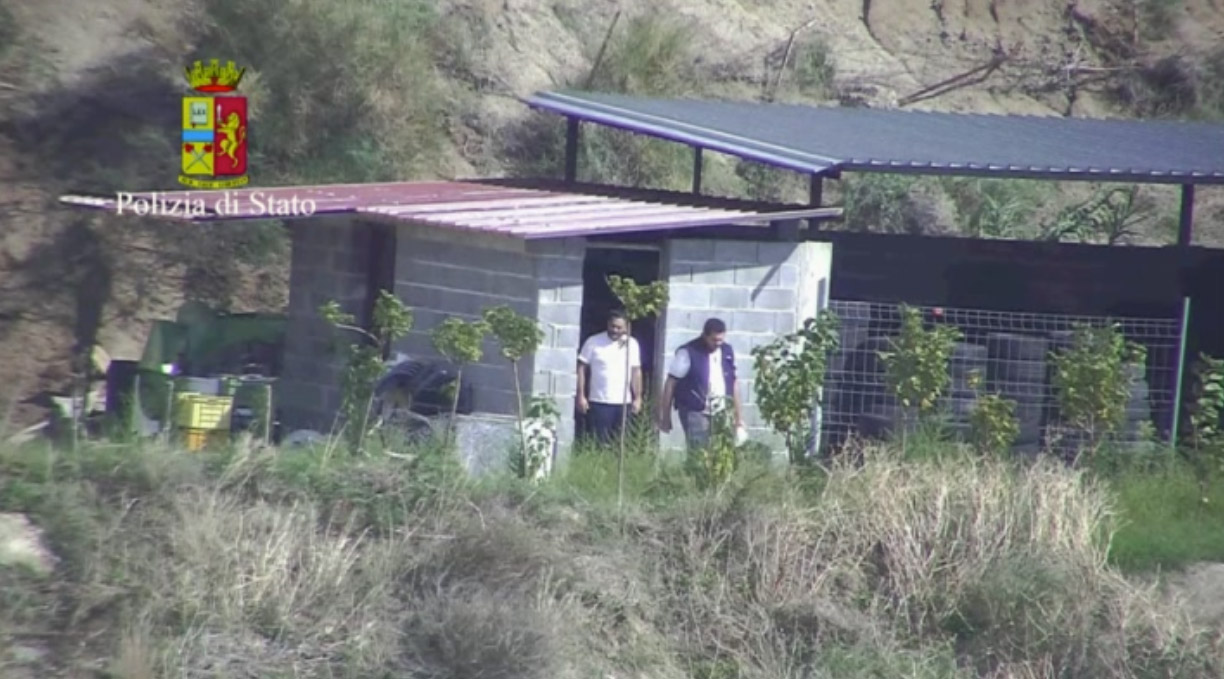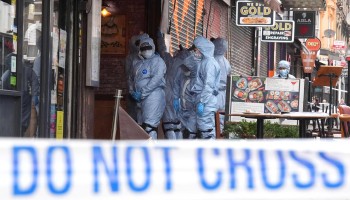The organized crime group, whose home is the southern Italian region of Calabria, is a global juggernaut that controls, among other things, the import of tens of billions of dollars of Latin American cocaine into Europe every year. It is also deeply traditional, relying on strict, generations-old codes of behavior and secrecy.
On the surface, Jole Figliomeni appears to have built her life away from the mafia. Nearly a decade ago, Figliomeni, the daughter of an ‘Ndrangheta leader, fell in love with the wrong man, triggering a scandal that brought the clans to the brink of war. Caught between two angry families and facing the arrest of her father, she packed her bags and struck out on her own, moving to the West African country of Ivory Coast.
Jole said she left to find a society that’s not based on who you are and who you know.
But Italian law enforcement documents obtained by the Investigative Reporting Project Italy (IRPI), an OCCRP partner, show that the move may not have been quite so clean a break. Jole’s new home placed her at the center of what has become one of the most important hubs in the ‘Ndrangheta’s cocaine importation network.
Wiretap transcripts obtained by IRPI show that she never severed her ties with her family.
Calabria’s Cocaine Capital
A graceless, post-war sprawl on the shores of the electric blue Ionian Sea, the Calabrian town of Siderno is an unassuming capital for a global narco-empire.
According to Italian anti-mafia police, the town is home to one of the ‘Ndrangheta’s most powerful groups, the so-called Siderno Group of Crime.
Even compared to Italy’s other major crime groups -- Cosa Nostra in Sicily and Camorra in Naples -- the ‘Ndrangheta is a prodigious smuggler of drugs. Some specialists estimate that the network controls the majority of Europe’s cocaine imports.
And within the ‘Ndrangheta, the four main families in Siderno – the Commisso, the Aquino-Coluccio, the Crupi, and the Figliomeni – are among the biggest players, according to Antonio De Bernardo, a regional anti-mafia prosecutor.
“Decisions made by the four families can affect global cocaine prices,” De Bernardo told IRPI.
When family members, usually men, are arrested, it falls to Siderno’s women to keep the trade going.
That’s why ‘Ndrangheta marriages aren’t just about love, or even honor. They’re also about business.
A Doomed Affair
Towards the end of 2008, Jole, then in her late twenties, fell in love with the wrong man, according to wiretap transcripts obtained by IRPI.
Jole is the daughter of Alessandro Figliomeni, at the time the town’s mob-linked mayor. But the man she struck up a relationship with, Giuseppe Crupi, was a member of another of the four local ‘Ndrangheta families.
In themselves, relationships between members of two different families are a typical and even essential part of forging alliances. The problem is that Crupi was already married. His wife was the sister of Siderno’s boss of bosses, Giuseppe Commisso, a man universally known as U’Mastru – The Master.
 Commisso Giuseppe, alias U'Mastru, boss of the Commisso clan of the 'Ndrangheta. (Photo: Italian Police) When the relationship became known, the scandal enraged U’Mastru and threatened to pit two of the town’s most prominent families against each other. The Crupi family ran a flourishing flower business in the Netherlands which served as a cover for their drug trade. The Figliomenis, via Alessandro’s position as mayor, kept a lock on local politics.
Commisso Giuseppe, alias U'Mastru, boss of the Commisso clan of the 'Ndrangheta. (Photo: Italian Police) When the relationship became known, the scandal enraged U’Mastru and threatened to pit two of the town’s most prominent families against each other. The Crupi family ran a flourishing flower business in the Netherlands which served as a cover for their drug trade. The Figliomenis, via Alessandro’s position as mayor, kept a lock on local politics.
Tension among the families ran high. According to documents stemming from a 2015 investigation, Siderno’s ‘Ndrangheta society disapproved of Giuseppe Crupi’s actions --not so much because he had violated the “code of ethics,” but because his behavior had reduced the stature of U’Mastru in front of the whole ‘Ndrangheta.
In early January 2009, a Canadian-based member of the group was overheard explaining that the scandal had damaged the honor of U’Mastru’s family, the Commissos, while strengthening relations between the Crupi and Figliomeni -- a big deal, considering the Crupis’ economic clout.
In the past, ‘Ndrangheta wars have proven bloody and ruthless. The feud of San Luca, sparked in 1991 when a group of Pelle-Vottari boys threw eggs at boys from the Nirta-Strangio family, continued for years. It ended only after the infamous 2007 Duisburg massacre in Germany.
But this time in Siderno, the tensions didn’t escalate into violence -- likely because the families were tightly intertwined by a series of marriages. Any conflict would have been devastating, De Bernardo, the anti-mafia prosecutor, said.
“It seems that they needed a stronger reason than adultery to spark an internal war.”
In any case, crisis was averted in December 2010, with the arrest – and eventual conviction – of mayor Figliomeni, Jole’s father, on charges of corruption and mafia-type association. Faced with an external threat, the four families involved set aside their differences.
In April 2011, Jole left Italy for Abidjan. Her romance with Crupi, it appears, was over.
“After the earthquake that hit my father for things that are still being discussed in an ongoing trial, I had to move to Africa, to a developing country,” Jole said in an email to IRPI, referring to her father’s arrest.
She moved, she said, “in order to be valued for my abilities and not to be pre-judged based on personal things that happened to my father.”
The West African Hub
If Jole was indeed trying to distance herself from the ‘Ndrangheta, Ivory Coast may not have been the best choice.
Over the last decade, the countries of West Africa have become increasingly important as waypoints in the cocaine trade to Europe, where direct shipments from South America raise red flags. Organized crime groups typically run numerous routes at once, allowing them to switch and adapt in response to law enforcement action.
According to an Italian police note obtained by reporters, Ivory Coast is recognised as one of these hubs.
It’s unclear exactly what Jole did for her first three years in the country. In one 2013 newspaper interview, she described herself as a “consultant” for the local publishing industry -- an intermediary attempting to build ties between her home region and the small Ivorian city of Doropo.
The same year, Italian authorities launched a fresh investigation into Siderno’s clans. It was a continuation of an earlier operation dubbed “Apegreen Drug,” after a laundromat owned by U’Mastru.
The operation, which included intensive surveillance and phone wiretaps, showed that the clan used West African ports, including Abidjan in Ivory Coast, to bring cocaine into Europe via the Belgian port of Antwerp, anti-mafia police told IRPI.
“Listening to [Siderno clan members] for over two years, we confirmed that U’Mastru was the leader of an extremely powerful drug ring based in the Locride [region in which Siderno is located],” Anti-mafia prosecutor De Bernardo said. “He is a sort of feudal lord through whose hands the entire illicit traffic had to pass, including of course the drugs.”
The wiretaps suggest that, in early 2014, the Siderno clan reached out to their wayward daughter, Jole.
On Feb. 9, the police picked up Claudio Spataro, a Siderno logistics manager travelling in Abidjan, Ivory Coast, making a call to another of U’Mastru’s lieutenants, Cosimo Pezzano.
From Italy, Pezzano requested an update on an unnamed “girl.”
“Is she taking you around?” he asked.
“Yes, yes, the poor thing,” Spataro replied. “She’s going nuts. If it wasn’t for her we would be ruined. I don’t understand the language, I know nothing. Fuck. Well, I mean I came here precisely for her, otherwise...”
“Well of course, she already knows the place.”
“Yeah I mean she left her job, she abandoned it [to help]. She’s been coming around with me for three days.”
The name of the “girl” in question does not appear in the wiretaps -- but police working on the Apegreen Drug investigation appeared to have identified her as Jole, since they included this transcript in a document sent to prosecutors that alleged her involvement in his trip.
“The wiretaps seem to show Spataro was in Ivory Coast to organise drug trafficking,” according to the November 2015 document.
Police surveillance during the operation showed that he had also travelled to Brazil, also a major 'Ndrangheta hub.
According to a summary of evidence put together for prosecutors, police believe that U’Mastru had tasked Spataro with setting up a drug route from Abidjan to the Belgian port of Antwerp.
The girl in question appears to have been seen by U’Mastru as key to the effort.
A New Job
On Oct. 12, 2015, the officers working on the Apegreen Drug investigation decided to strike.
On a stakeout in the hills of Siderno, they watched Spataro push a wheelbarrow through a field. Pausing outside a warehouse, he retrieved a plastic package from the wheelbarrow and placed it inside the building. Minutes later, another man fetched the package, got into a jeep, and drove towards the town. When police swooped in and searched the vehicle, they found a single white brick of cocaine.
 Claudio Spataro (in white shirt) and a man picking up the white bag of cocaine in a police surveillance video. (Photo: Italian Police)
Claudio Spataro (in white shirt) and a man picking up the white bag of cocaine in a police surveillance video. (Photo: Italian Police)
The operation resulted in the arrest three months later of Spataro, Pezzano and 21 others on drug trafficking charges. U’Mastru, arrested in July 2010 in a separate operation, is also on trial.
Police traced the one-kilo brick to a shipment that had arrived in Antwerp just days before. It had set out from Abidjan, Jole’s adoptive home.
But that’s as far as the investigation went.
In contrast to their mafia adversaries, Italian law enforcement bodies are tightly constrained by national borders. Case documents show there was no local follow-up after the 2014 wiretap of Spataro in Abidjan. With no investigators on the ground in Ivory Coast and no ability to tap local phones, police had little information on how the Siderno families may have used the port, case documents show.
It is unclear if Jole’s involvement was merely as a one-off tour guide, or if it was of greater significance.
Her Facebook profile, however, provides some clues on what she did after Spataro’s visit.
On Feb. 26, 2014, just 15 days after the phone call in which Spataro said he came “precisely for her,” Jole started what appears to have been a good job as an operations manager at a highly connected Abidjan information technology and cyber-security firm.
But that’s where the trail goes cold.
IRPI reporters reached out to the company’s owner in mid-August. He did not answer questions about whether he had any contacts with the Siderno clan.
In an email, Jole told IRPI that the company had fired her as a result of reporters’ questions. But her Facebook profile shows that she left the firm in June -- at least six weeks before reporters reached out to the owner.
It’s not known exactly what Jole did for the Siderno clan or how long her assistance may have continued. When initially contacted, Jole told IRPI she would answer questions to help fight the ‘Ndrangheta. She never followed through on her promise.
For Federico Varese, a Professor of Criminology at the University of Oxford, her involvement demonstrates a key strength of the ‘Ndrangheta: family.
Other groups such as Sicily’s Cosa Nostra -- the mafia popularized by Hollywood -- allow non-family members to join. This makes it easier to members to leave and for the police to develop sources on the inside, Varese said.
But the ‘Ndrangheta’s relies much more on family ties.
"The crucial thing to distinguish is that the Italian mafias are based on family ties, and this is particularly true for the ‘Ndrangheta where the blood-tied families mainly mirror the mafia families. They are all related with each other; they are the same thing, the same structure."
Varese said the ‘Ndrangheta literally move by a chain migration whereby family members move across the globe before sending for others. Varese said this is a key part of their success.
“The ‘Ndrangheta has a much larger global reach than the other Italian mafias, and this is also linked to the fact they are all relatives,” Varese said.
When they establish a new base or do business in a foreign land, Italian mafias always look for a hook, some Italian community or national who already lives in the country and who knows their way around, preferably somebody who doesn't mind dealing with the clans.
“For the women,” Varese said, “it’s really hard to say no to close family.”
This story was produced in partnership with IRPI and Correctiv, and funded by the Flanders Connecting Continents Grant.
It is part of the Global Anti-Corruption Consortium, a partnership between OCCRP and Transparency International. For more information, click here.






